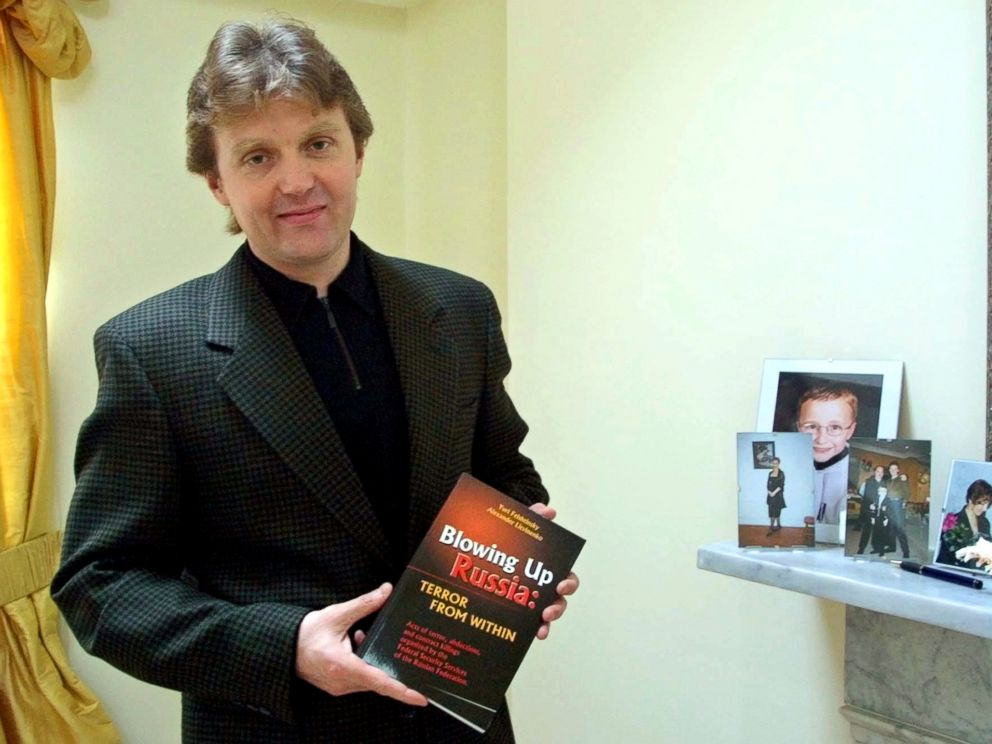Putin 'Probably' Approved Spy's Assassination, Say Brits
Russia dismisses allegations as "politicized."
— -- Russian President Vladimir Putin was "probably" directly involved with the 2006 assassination-by-radioactive poison of a former Russian spy on the streets of London, an official British inquiry has found.
The 300-plus-page inquiry report by Sir Robert Owen, published online today, acknowledges that the case against the Russian government is based mainly on "circumstantial" evidence, but says, "Taking full account of all the evidence and analysis available to me, I find that the FSB [Russian intelligence] operation to kill Mr. [Alexander] Litvinenko was probably approved by [then-FSB chief] Mr. [Nikolai] Patrushev and also by President Putin."
Litvinenko, a Russian national, had been employed by the FSB and its predecessor organization, the KGB, until 1998 when the inquiry says he was kicked out for making public allegations of illegal activity within the spy service. Litvinenko moved to London where he worked as a writer until one day in 2006 he suddenly became ill for no apparent reason. It was only weeks later and hours before his death that health officials realized he had been poisoned with "extremely high levels of the radioactive isotope polonium 210" -- likely slipped into his tea during a lunch meeting with two Russians, according to the inquiry report.

The report says that the Russian government considered Litvinenko to have “betrayed” it, both for his public remarks before he left Russia and, later, for allegedly working for British intelligence.
“Finally, there was undoubtedly a personal dimension to the antagonism between Mr. Litvinenko on the one hand and President Putin on the other,” the report says. The two had met in 1998 when Putin was head of the FSB and “in the years that followed, Mr. Litvinenko made repeated highly personal attacks on President Putin, culminating in the allegation of paedophilia in July 2006,” just months before Litvinenko’s death.
The inquiry penned the actual murder on two men, Andrey Lugovoy and Dmitri Kovtun, but determined they were likely working under orders from the FSB and further up the political ladder to President Putin.
Today the Russian Foreign Ministry dismissed the findings, accused the British government of "politicizing" the inquiry, and reiterated its call for an "objective and unbaised" investigation.
"U.K. authorities create a dangerous precedent when they use their domestic legal system in a politically-laden investigation," Foreign Ministry spokesperson Maria Zakharova said.
One of the accused killers, Lugovoy, told a Russian news agency that the "accusations leveled against [him] are absurd."
"The inquiry findings that were made public today have once again shown London's anti-Russian position, its close-mindedness, and the Brits' unwillingness to determine the true cause of Litvinenko's death," he reportedly said.
Kovtun reportedly declined to comment.




